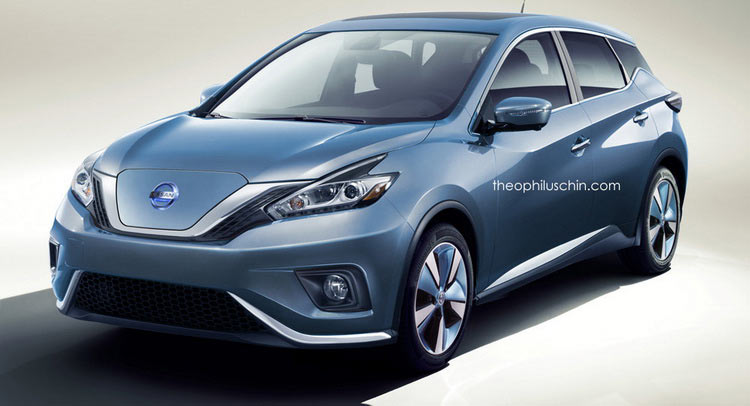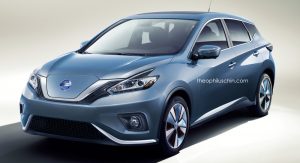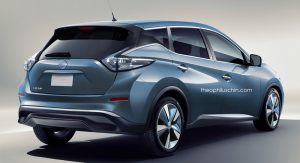Nissan’s next-gen all-electric Leaf hatchback will be offered to customers with a series of different battery pack sizes, capable of providing up to 340 mile’s (547 km) worth of range.
If Nissan do achieve such a range, the Leaf should become a more mainstream product able to address any sign of range anxiety coming from its consumers.
The Japanese automaker used the IDS concept in order to preview the next-generation Leaf, specifically its 60kWh battery pack, which could supposedly offer a range between 310 (498 km) and 340 miles (547 km).
As stated by Nissan exec Gareth Dunsmore, this type of range should be possible to achieve in 2018, as long as the larger battery will meet the company’s price and durability targets. Autocar says Dunsmore didn’t refer directly to the Leaf but since the model is due for a replacement in 2018, it’s possible that 340 miles could be a headline figure for its range-topping version.
In contrast, the current Leaf, though recently revised, is offered with a 30kWh lithium ion battery pack, granting customers a range of 155 miles (250 km) – up from 124 miles (200 mph) offered by the standard 24kWh battery.
“We have two battery options now, and will grow options, making it more accessible with a longer range and a price to match,” stated Dunsmore.
The current model is still going strong in Europe where 6% of all Nissan EU sales in March were EVs. Dunsmore hopes that number will climb to 20% by 2020 – made possible by the all-new model with its greater range. Speaking of which, we have no idea what this all-new Leaf is going to look like, but this rendering courtesy of Theophilus Chin is as good a place to start speculating as any.
What Nissan doesn’t currently have in their lineup is a plug-in hybrid, which Dunsmore believes to be nothing but a compromise.
“When you are driving a plug-in, you have an electric motor and an internal combustion engine. You use the engine most of the time and it makes emissions worse. I see their relevance, but there is a compromise. I’m glad we took the step and built up a leadership in electric vehicles.”
The Nissan exec also welcomes competition from other brands, as it will only lead to more consumers accepting EVs as the way of the future – and is at the same time appreciative of how successful Tesla has become.
“Nissan showed bravery 10 years ago to invest $4 billion (£2.77bn) in electric vehicles, and all that bravery has built up expertise that’s unparalleled. Other brands are now fellow pioneers. EVs are a real and viable alternative, and we’re now heading towards tangible benefits in cities and for the climate.”
“Having Tesla, the visibility for the technology is a massive benefit,” he added. “Go to Google, type in ‘EV’ and we’re there. We have expertise in the tech and in making it accessible. We will continue to do that, and the more people that catch up the more visibility there is for us.”





